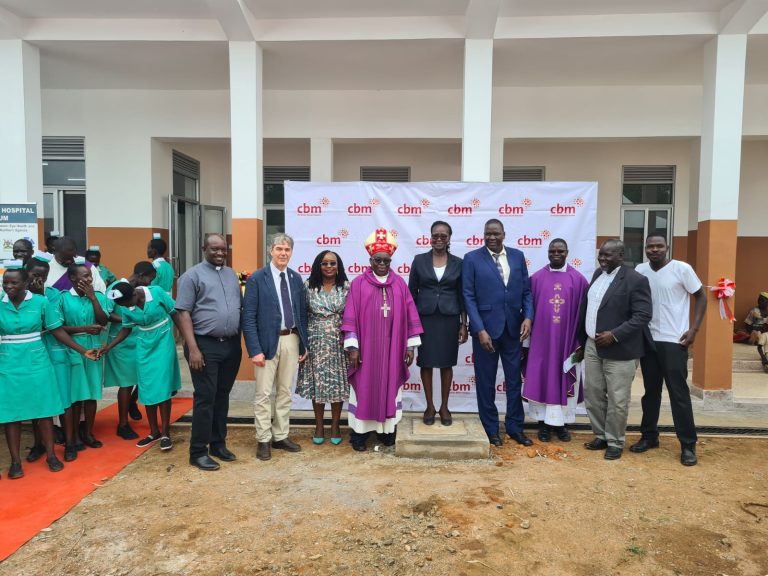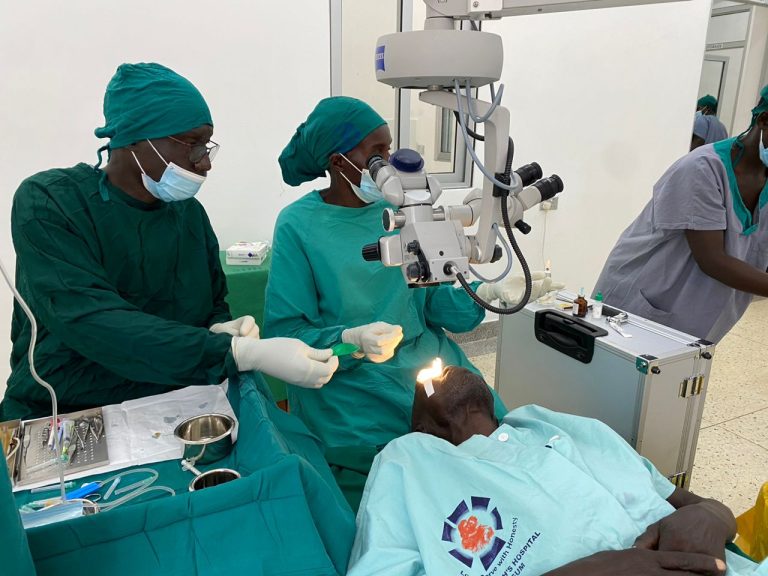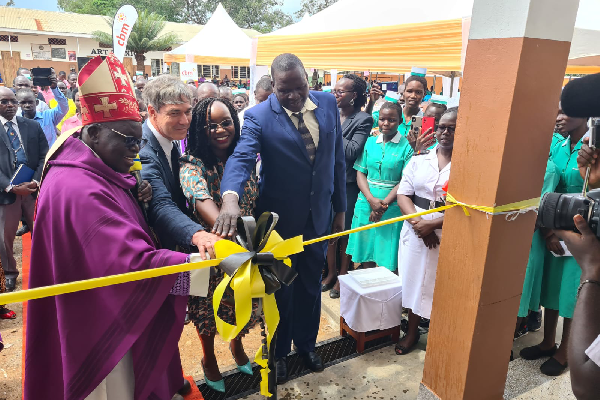Il reparto ha l’obiettivo di migliorare l’accesso e la qualità dei servizi oftalmici per 10.200 persone ogni anno, con particolare attenzione alle categorie più vulnerabili come persone con disabilità, donne e bambini, che vivono anche nelle comunità più remote.
Il nuovo plesso vede la luce dopo tre anni di lavori grazie a un ampio progetto di cooperazione internazionale, di cui è capofila Cbm Italia – organizzazione umanitaria impegnata nella prevenzione e cura delle disabilità visive nei Paesi del Sud del mondo – in accordo con il ministero della Salute ugandese, in collaborazione con la Osc Medici con l’Africa Cuamm e i governi distrettuali di Kitgum, Arua e Terego.
L’inaugurazione è avvenuta alla presenza del direttore di Cbm Italia Massimo Maggio, di monsignor John Baptist Odama, arcivescovo di Gulu, della ministra della Salute ugandese Jane Ruth Aceng, della direttrice medica del S. Joseph Hospital Pamela Atim e di Jackie Kwesiga, country director di Cbm per l’Uganda.
In Uganda sono 3 milioni le persone con problemi di vista, ma al momento in tutto il Paese è presente un oftalmologo ogni milione di persone. Patologie come cataratta, errori refrattivi, tracoma, traumi e glaucoma portano alla cecità poiché non vengono curate a causa della mancanza di mezzi e servizi oftalmici adeguati, soprattutto nelle zone più remote. Il 75% dei casi di cecità sono tuttavia evitabili e curabili secondo l’International Agency for the Prevention of Blindness (Iapb).
Il nuovo plesso prevede una nuova sala operatoria che rende il centro oculistico capace di erogare cure diagnostiche, trattamenti specialistici e chirurgie. A questo si aggiunge il rinnovamento della sala per la degenza dei pazienti.
Lo stesso progetto ha permesso inoltre la ristrutturazione e l’equipaggiamento di altri quattro centri sanitari, oltre all’organizzazione di cliniche oculistiche chirurgiche e non chirurgiche mobili nelle comunità lontane e nei campi profughi.


